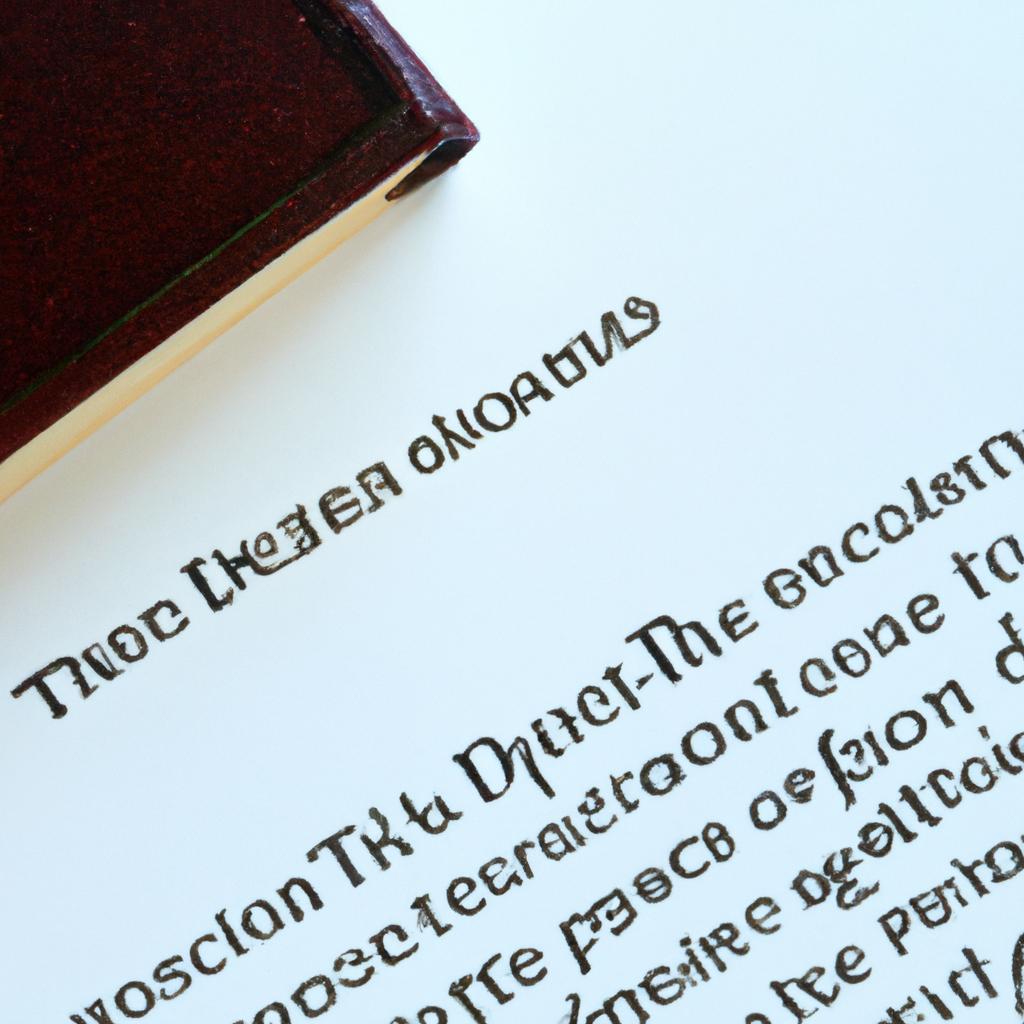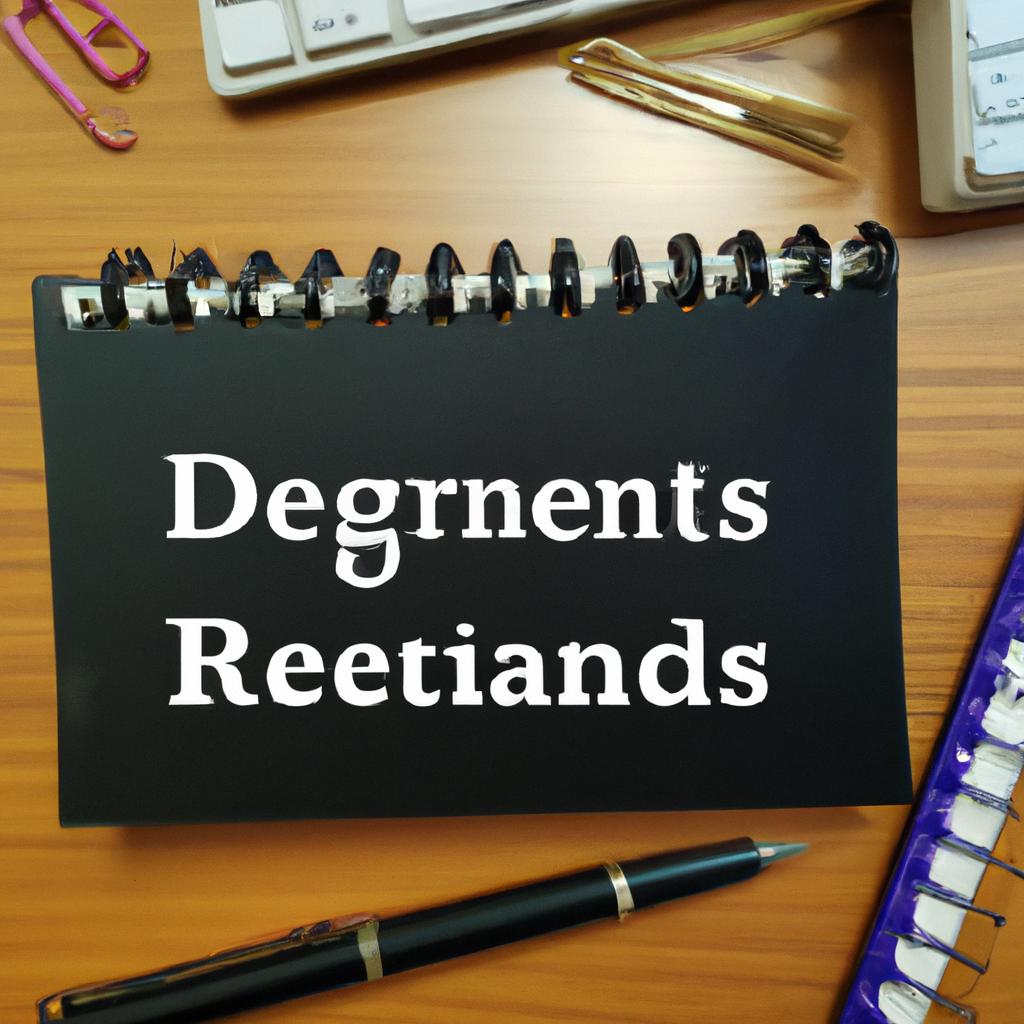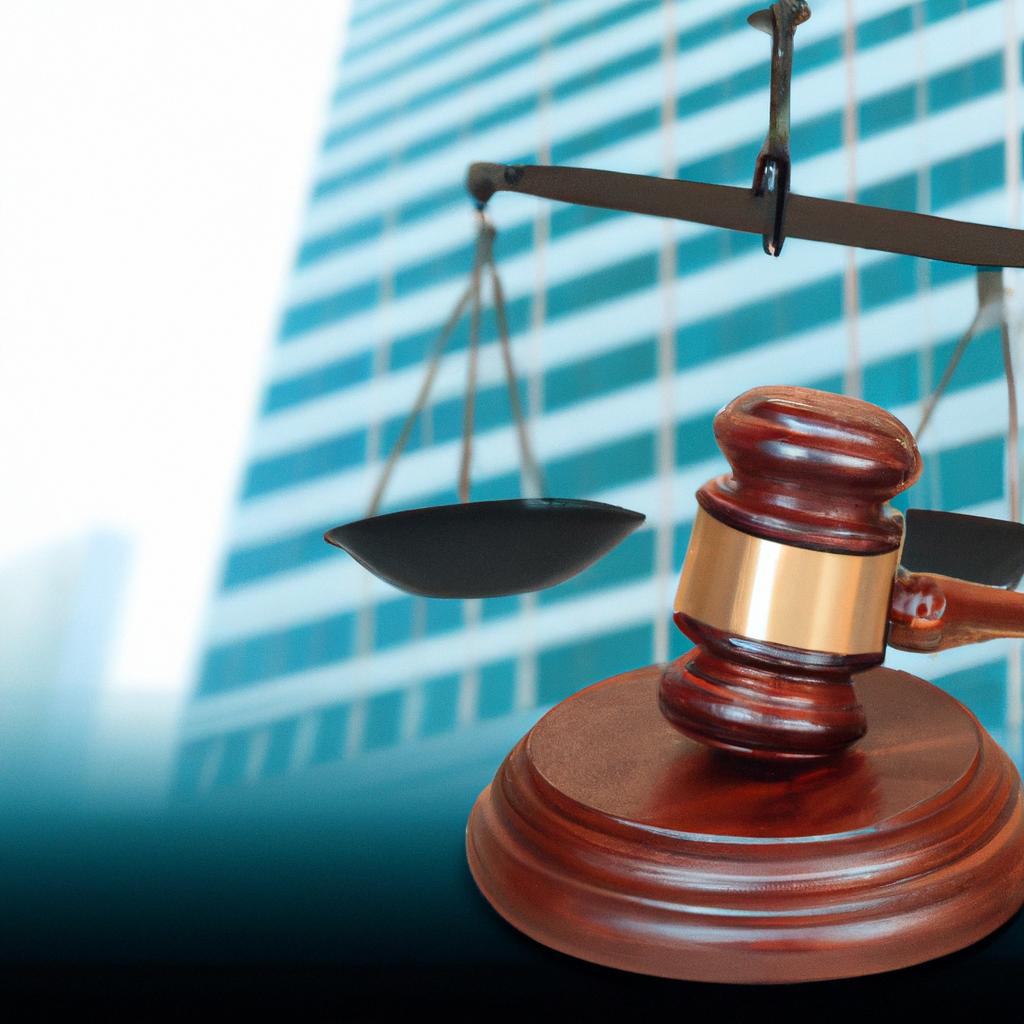In the intricate tapestry of real estate transactions and property law, the Register of Deeds shines as a beacon of clarity and organization. As stalwart guardians of public records, these officials play an integral role in documenting the transfer of property ownership and safeguarding the legal foundation of our communities. In this article, we will delve into the significance and functions of the Register of Deeds, shedding light on their crucial role in maintaining the integrity of property rights and transactions. Join us as we explore the intricacies of this vital office, with insights and expertise from Morgan Legal Group, premier practitioners of estate planning and property law in the bustling metropolis of New York City.
Understanding the Role of a Register of Deeds in Property Transactions
The Register of Deeds plays a crucial role in property transactions by maintaining public records related to real estate ownership and transfers. This official is responsible for ensuring the accuracy and legality of property documents, such as deeds, mortgages, and liens. By meticulously recording and indexing these documents, the Register of Deeds helps provide transparency and security in property transactions.
When a property is bought or sold, the Register of Deeds is tasked with updating the public records to reflect the new ownership. This process helps protect the rights of property owners and ensures that all transactions are properly documented and accessible to the public. Additionally, the Register of Deeds may also be involved in overseeing the legalization and notarization of property documents to ensure their validity.

The Importance of Maintaining Accurate Records in the Register of Deeds Office
Maintaining accurate records in the Register of Deeds Office is crucial for ensuring transparency, legality, and efficiency in property transactions. The Register of Deeds is a government office responsible for recording and maintaining legal documents related to real estate ownership, such as deeds, mortgages, and liens. These records serve as an official public record of property ownership and help to establish a clear chain of title.
Properly maintained records in the Register of Deeds Office provide a reliable source of information for property owners, buyers, sellers, and lenders. By accurately recording and indexing documents, the Register of Deeds helps to prevent disputes over property ownership, fraudulent transactions, and clouded titles. This contributes to the smooth operation of the real estate market and protects the interests of all parties involved in property transactions. Maintaining the integrity of these records is essential for upholding the rule of law and promoting trust in the real estate system.
Navigating the Process of Accessing and Searching Public Records
When delving into the process of accessing and searching public records, one key entity to understand is the Register of Deeds. This office is responsible for maintaining a wide range of important documents that are crucial in real estate transactions, legal proceedings, and genealogy research. The Register of Deeds office typically houses records such as deeds, mortgages, liens, plats, and other property-related documents.
One of the primary functions of the Register of Deeds is to provide public access to these records, allowing individuals to search for and retrieve pertinent information. Utilizing the resources available at the Register of Deeds office can be incredibly helpful in conducting thorough research, validating property ownership, and uncovering historical data. By familiarizing oneself with the process of accessing and searching public records through the Register of Deeds, individuals can navigate the complexities of real estate transactions and legal matters with confidence and clarity.

Best Practices for Utilizing the Services of the Register of Deeds Office
When it comes to utilizing the services of the Register of Deeds office, there are several best practices that individuals should keep in mind. One important aspect to consider is the importance of accurately recording all property transactions and documents. This ensures that the chain of title is clear and any future disputes or issues can be avoided.
Another best practice is to regularly review and update property records to ensure that they are current and accurate. By staying on top of any changes or updates, individuals can prevent any potential issues down the line. Additionally, it is important to work closely with the Register of Deeds office staff to ensure that all documents are filed correctly and in a timely manner.
Q&A
Q: What is a register of deeds?
A: A register of deeds is a government office responsible for maintaining records related to real estate transactions and ownership.
Q: What kind of records does the register of deeds office keep?
A: The register of deeds office keeps records of deeds, mortgages, liens, easements, and other legal documents related to real estate.
Q: Why is the register of deeds important?
A: The register of deeds is important because it provides a centralized repository for important real estate records, ensuring transparency and facilitating property transactions.
Q: How can individuals access records from the register of deeds?
A: Individuals can access records from the register of deeds either in person at the office, or through online databases that some offices provide.
Q: What is the role of the register of deeds in property transactions?
A: The register of deeds plays a crucial role in property transactions by ensuring that all necessary documents are recorded and made available to buyers, sellers, and other parties involved in the transaction.
Q: Can anyone search for records in the register of deeds office?
A: Yes, in most cases, anyone can search for records in the register of deeds office, although some offices may require a fee for access to certain records.
Final Thoughts
In conclusion, the Register of Deeds plays a crucial role in our communities by recording and safeguarding important property and land documents. Understanding the responsibilities and functions of the Register of Deeds can help us appreciate the important work they do in ensuring the integrity of property ownership. Next time you need to research a property title or record a deed, remember to pay a visit to your local Register of Deeds office – the unsung heroes of property documentation. Thank you for reading!

